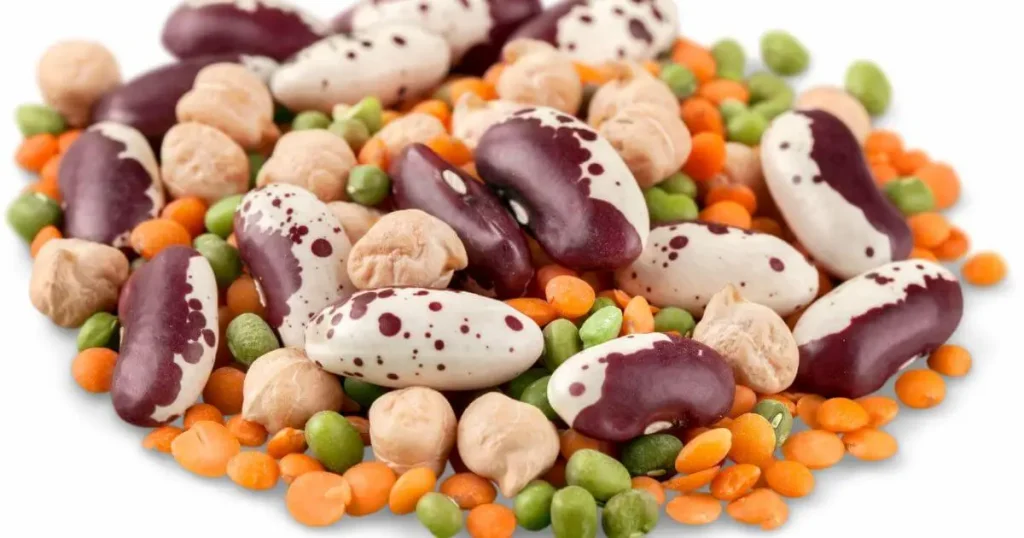Plant-based diets have surged in popularity for a multitude of reasons. More and more people worldwide have discovered the advantages of a plant-based diet that includes fruits, vegetables, and other plant-derived foods. One crucial ingredient of such a diet is consuming the right carbohydrates. Contrary to popular belief that all carbohydrates are bad, the right type of carbohydrates can be a significant source of energy for muscle recovery and can aid in weight management.
Different plant foods are good for you if you’re a vegan or want to eat more plants. Some can give you energy, some can help your muscles improve after exercise, and some can help you manage your weight. This guide will show you which plant foods to eat to stay healthy and happy.
What Are Plant-Based Carbs?
Carbohydrates are food that gives your body energy. In a plant-based diet, you only eat carbohydrates from plants, not animals. You can get carbohydrates from grains, vegetables, beans, and seeds. Carbohydrates are essential because they help your body work properly.
Why Are Carbs Important for a Plant-Based Diet?
Carbohydrates are indispensable for several reasons. Carbohydrates are the body’s primary energy source and help keep our brain and body active, especially during exercise. They also make our stomachs healthy by providing fiber found in plant-based foods. Additionally, some plant-based carbohydrates act as prebiotics, nourishing beneficial gut bacteria. This can significantly benefit your overall health.
The Best Plant-Based Carbs for Energy and Satiety
If you’re looking for a quick energy boost, try high-fiber carbohydrates. They slowly release energy throughout the day, which can help you feel complete and focused. These complex carbs are a good choice for avoiding the sudden crash that can come with sugary snacks.
High-Fiber Carbohydrates
Legumes: Lentils, chickpeas, and all types of beans are superstars in plant-based nutrition. They’re high in fiber and provide a significant dose of protein, making them a double whammy for satiety and energy.
Whole Grains: Think beyond brown rice—there’s quinoa, barley, and bulgur, all renowned for their high-fiber content, which can reduce the risk of heart disease and help manage weight.
Root Vegetables: These four root veggies – sweet potatoes, carrots, beets, and parsnips – are yummy and can make you feel full for a long time. They give you energy that lasts a while.
Low-Glycemic Index (GI) Carbs
Carbohydrates with a low GI value, usually under 55, break down more slowly, providing a gradual and sustained energy source. These are particularly beneficial for maintaining stable blood sugar levels.
Quinoa: This gluten-free seed (often mistaken for a grain) is a complete protein and a fantastic complex carbohydrate perfect for maintaining satiety.
Sweet Potatoes: This side dish is filling and satisfying without causing a significant spike in blood sugar levels. It also provides a good source of fuel for your body.
Lentils: Beans are good for you because they have healthy carbs and are great in soups and stews.
Plant-Based Carbs for Muscle Recovery and Growth
Carbohydrates are often seen as a less glamorous macronutrient than protein, yet they are equally essential for maximizing muscle recovery and growth.
Protein-Rich Plant-Based Carbs
Chickpeas: Their versatility in hummus, curries, and salads is just the start. Chickpeas, or garbanzo beans, are high in fiber and protein—perfect for muscle recovery after a workout.
Black Beans: Besides being an excellent fiber source, black beans contain a good amount of protein to help support your muscle health.
Edamame: These young soybeans are not only a staple in Asian cuisine but are also an excellent protein and carbohydrate source, especially beneficial for vegetarians and vegans.
Enhancing Protein Utilization
Carbohydrates, particularly after a workout, help re-fill glycogen stores, the body’s primary energy source during exercise. By doing so, they can enhance protein utilization in muscle repair and growth.
Plant-Based Carbs for Weight Management
Weight management is about more than just eating less. It’s about eating right, and the best plant-based carbs for this focus on sustaining a caloric deficit without leaving you hungry.
Low-Calorie Density Carbs
Leafy Greens: Spinach, kale, Swiss chard, and their leafy cohorts are filled with fiber and a variety of essential nutrients with minimal calories, making them ideal for those who want to maintain a healthy weight.
Berries: Like blueberries, strawberries, and raspberries contain antioxidants and essential vitamins. At the same time, their natural sugar content is balanced by a high fiber content, providing that sweet taste with no guilt.
Non-Starchy Vegetables: The more vibrant and varied your plate, the better. Vegetables like bell peppers, zucchini, and eggplant offer a rainbow of nutrients, and their high fiber keeps you full without adding significant calories.
Fiber and Water Content
Fiber is the unsung hero in weight management—it provides bulk and satiety and slows digestion. Foods high in fiber also tend to be high in water content, making you feel full.
Incorporating a Variety of Plant-Based Carbs in Your Diet
Balancing your macronutrients can be a delicate dance, but it doesn’t have to be complicated. Here are practical tips for ensuring your diet is rich in a diverse selection of plant-based carbs.
Meal Planning and Preparation
Plan your meals around various plant-based carbs to ensure you get a comprehensive spread of nutrients. Cook large batches of your favorite grain, such as quinoa, millet, or brown rice,e for quick, healthy meals at the start of the week.
Recipes and Meal Ideas
Are you looking for some culinary inspiration? Try a colorful quinoa salad with roasted vegetables or a hearty lentil and kale stew. Combining different sources of plant-based carbs in one meal provides multiple health benefits and creates delicious, satisfying dishes.
The breadth of plant-based carbohydrates available to you is vast. Plant-based foods offer various options for people focusing on sustained energy, muscle health, or weight management. By being mindful of the types of carbs you consume and the roles they play in your overall diet, you can harness the power of plant-based eating for a more vibrant and healthful lifestyle.
To enjoy this diet, you can explore new ingredients and be creative in cooking. This will help you find numerous options within the plant kingdom that suit your needs and provide you with a varied and nutritious diet.
Frequently Asked Questions
What are plant-based carbs?
Plant-based carbs are carbohydrates from plant sources such as fruits, vegetables, whole grains, legumes, and nuts. They are essential to a balanced diet and provide energy, fiber, vitamins, and minerals.
Why are plant-based carbs important in a diet?
Plant-based carbs are essential because they provide complex carbohydrates that are digested slowly, helping maintain stable blood sugar levels and sustaining energy. They also contain fiber, which promotes digestive health and helps you feel full and satisfied.
What are some examples of the best plant-based carbs to include in a diet?
Some of the best plant-based carbs to include in your diet are:
- Whole grains like quinoa, brown rice, oats, and barley.
- Legumes such as lentils, chickpeas, black beans, and kidney beans.
- Fruits like berries, apples, oranges, bananas, and mangoes.
- Vegetables include spinach, broccoli, sweet potatoes, carrots, and kale.
- Nuts and seeds like almonds, walnuts, chia seeds, flaxseeds, and pumpkin seeds.
How can plant-based carbs benefit health?
Plant-based carbs can benefit health in several ways:
- They provide essential nutrients like vitamins, minerals, and antioxidants that support overall well-being.
- Their fiber content helps improve digestion, lower cholesterol levels, and reduce the risk of chronic diseases like heart disease, diabetes, and certain cancers.
- They contribute to a balanced diet that promotes weight management, energy levels, and overall vitality.
Are plant-based carbs suitable for people with dietary restrictions or preferences?
Yes, plant-based carbs suit various dietary preferences and restrictions, including vegetarian, vegan, gluten-free, and dairy-free diets. They offer multiple options tailored to individual needs while providing essential nutrients and promoting health.
How can I incorporate more plant-based carbs into my meals?
You can incorporate more plant-based carbs into your meals by:
- Choosing whole grains like quinoa or brown rice as the base for your meals.
- Adding legumes like lentils or chickpeas to soups, salads, or stews.
- Include a variety of fruits and vegetables in your snacks and meals, such as smoothies, salads, and stir-fries.
- Snacking on nuts and seeds or using them as toppings for yogurt, oatmeal, or salads.
Are there any plant-based carbs to avoid or limit in a diet?
While most plant-based carbohydrates are nutritious and beneficial, it’s essential to moderate the intake of refined or processed carbohydrates like white bread, sugary snacks, and sweetened beverages. If consumed in excess, these can lead to spikes in blood sugar levels and may contribute to health issues.
- The Complete Intermittent Fasting Guide for Beginners - September 11, 2024
- Blue Lotus Flower: Unlocking the Benefits, Uses and Safety - April 25, 2024
- How To Get Enough Protein On A Plant-Based Diet - April 5, 2024



